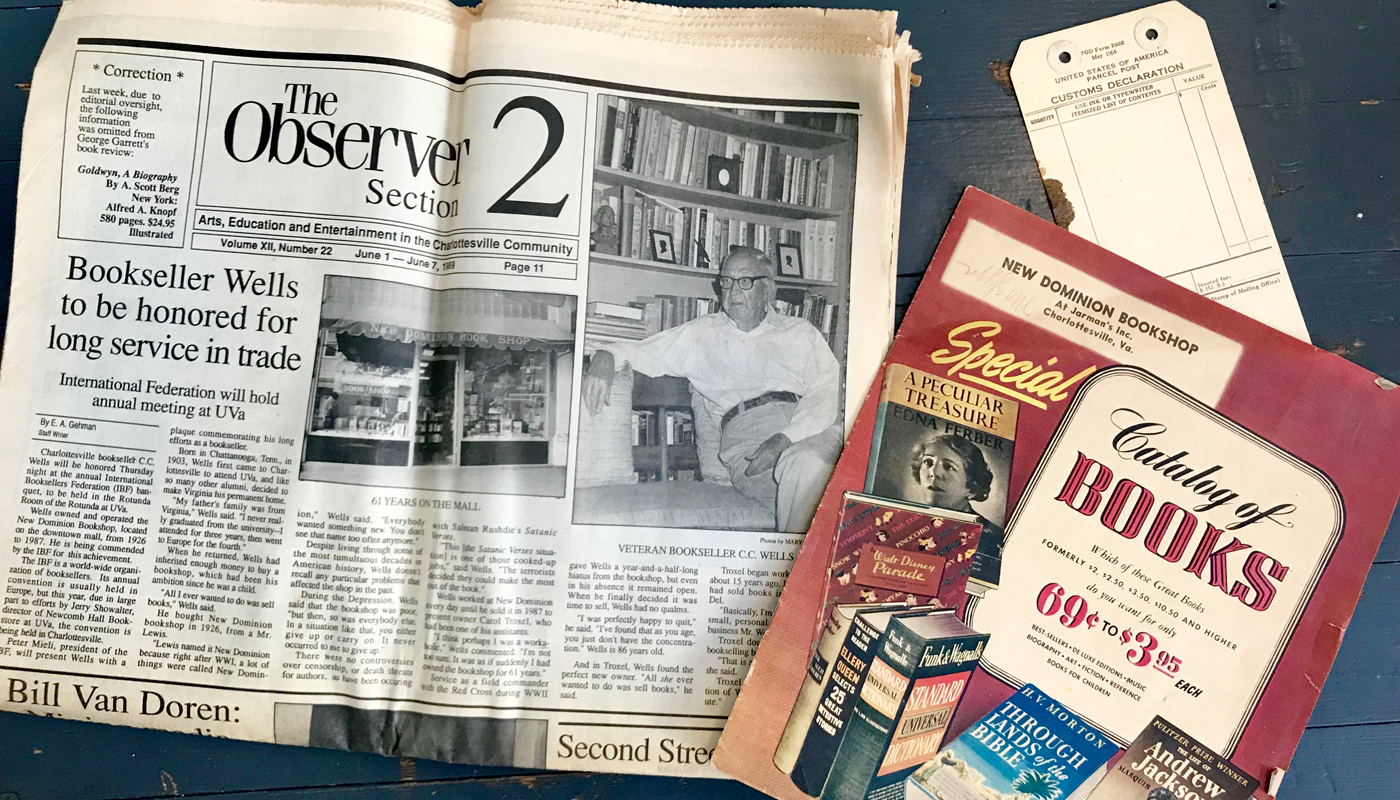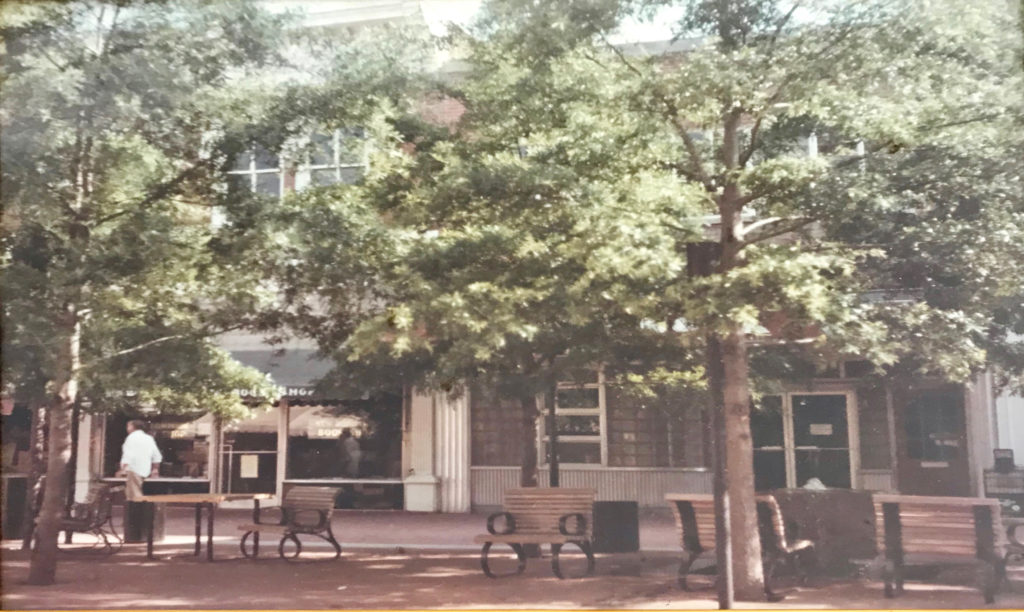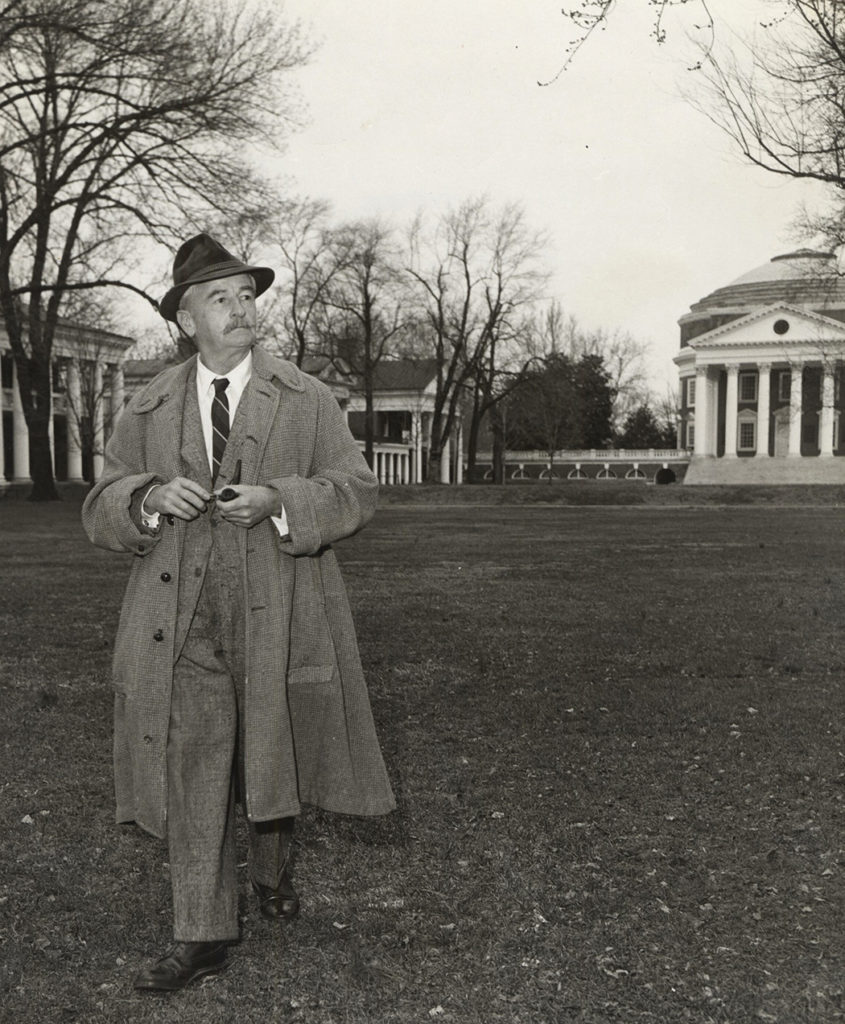
By Julia Henshaw
Christopher Columbus Wells—tall, white-haired, with glasses and large teeth, a little stooped in his gray seersucker suit and bowtie—had the courtly manners of a Southern gentleman of the old school. He was from Chattanooga, Tennessee. But when as a young man he opened his bookshop in 1924, he was forward-looking, naming it the New Dominion. He carefully selected interesting and worthwhile books that would appeal to his faithful clientele. C.C., as he was known to all, was a close friend of my grandfather, the forgotten Charlottesville novelist Nevil G. Henshaw. I had won several prizes for “scholarship” at Miss Nancy’s Stonefield School that allowed me to choose any book from C.C.’s shop, then located on Fourth Street. At the back of the store he kept a box with packets of various stamps for sale which was fun for aspiring young stamp collectors to rummage through. When I was sixteen, C.C. hired me to work in the summers and during the Christmas rush.
As the only bookshop in Charlottesville, the New Dominion supplied reading material to a number of wealthy individuals who never set foot Downtown, relying on C.C. to choose new books for them. Sometimes these were returned for full credit when the customer found them lacking and sometimes you could tell that they had been read all the way through. These were delivered at no charge by Buster, who also took boxes of returns to the post office and brought in new stock. In those days before credit cards, the bills were written out by hand by Lillian Wells, C.C.’s wife, who kept the books. I noticed that quite a few customers hardly bothered to pay their bills, including several with impressive Farmington addresses.

C.C. and Lil lived on Second Street in a handsome brick house filled with antiques and of course, books. They had no children. C.C. often crossed Main Street to Timberlakes for coffee in the morning and went home for a leisurely lunch every day.
Our most famous customer was William Faulkner, who came to Charlottesville because his daughter Jill lived out in the county. He was the writer-in-residence at the University in 1957 and 1958. A conspicuous figure around town, he wore a deerstalker hat and a dashing caped tweed coat and always clutched a pipe. When Faulkner came into the New Dominion, he only spoke with C.C.; I was an insignificant teenager. As seniors at St. Anne’s, we sat in on some of the great author’s class lectures. I wish I could say something memorable about them.
Sometime in the late 1950s and early ‘60s, the bookshop shared a rather sterile space in the new office building on the corner of First Street (?).

In the spring of 1963, C.C. and Lil wanted a real vacation, and as I had recently graduated from college, I was left in charge of the New Dominion for about six weeks. Not interested in taking a plane, they sailed from New York to visit London and Paris. I enjoyed being in charge, taking deposits to the bank and going to lunch with publishers’ salesmen at the Nook. After their return, I moved to New York for a job as a lowly editorial assistant at the Macmillan Company. I always visited with C.C. whenever I was in Charlottesville. He had moved once again to a more attractive space opposite the current location on Main Street. The late Carol Troxell was another of the many bookish young women who worked for C.C. over the years; she carried on the venerable tradition of the New Dominion until her untimely death.
My experience at the New Dominion launched my career, as I worked in the library in college, then gradually moved up the editorial ladder, eventually becoming the Director of Publications at the Detroit Institute of Arts, editing and producing art exhibition catalogues and other scholarly tomes co-published with Oxford and Yale University Presses, and others.